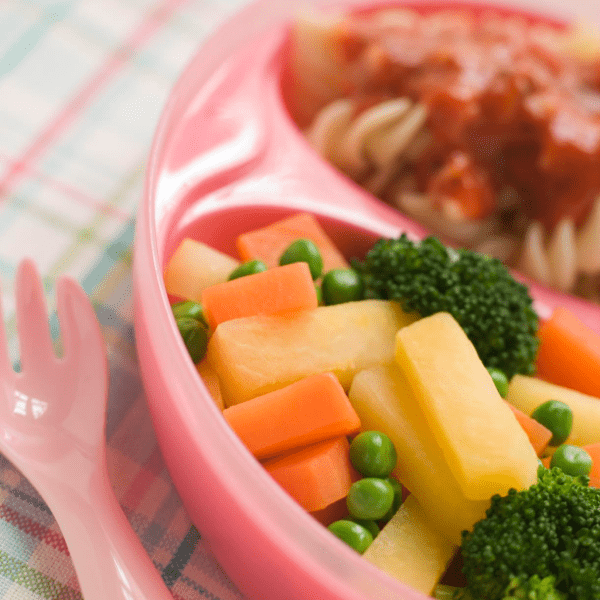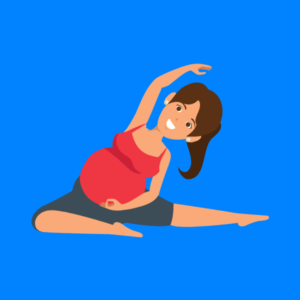Weaning is a hugely exciting time for babies as they try new tastes and textures. And at first, it’s all about fun and experimenting.
It’s recommended to begin weaning your baby onto solid foods when they reach 6 months of age. By the time your baby is six months of age, it is advised they start on solid foods alongside their breastmilk/formula milk, which is also known as complimentary feeding.
Your little one still needs the same amount of milk for a while. At the beginning they’re still learning how to eat and most food ends up on the floor and not going into their mouth.
But as they start eating more solid foods, they may naturally start drinking less breast milk or formula, depending on how much energy they need.
How much your baby eats depends on their appetite, so let your baby guide you on how much food they need – never force them to eat. In the same way you follow your baby’s cues when offering them breast or bottle feeds, be responsive to your baby when giving them solid foods, and learn to recognise when they’re hungry and when they’ve had enough.
When you start weaning, don’t worry about how much food your baby is eating. In fact, the NHS advise that he’ll still be getting most of his energy and nutrients from breast milk or formula during his first year.
What are the signs?
There are 3 clear signs, which, when they appear together from around 6 months of age, show that your baby is ready for their first solid foods. They are:
- If your baby can now stay in a sitting position and hold his/her head steady.
- If your baby doesn’t sleep through the night anymore and is now waking up earlier for morning feeds.
- coordinate their eyes, hands and mouth so they can look at their food, pick it up and put it in their mouth
- Swallows his food. A baby who isn’t ready will often push his food back out, getting more around his faces than in his mouth.
Signs your baby isn’t ready to start solid foods:
- Teething – Just because your baby’s tooth has come through, doesn’t mean your baby is ready to start eating solids. Some babies’ teeth pull through quite early and some pull through as late as one year, which makes them a pretty unreliable gauge for starting solids.
- Weight gain/slowed weight gain
- Demanding more milk
First foods: what can my baby eat?
A lot of mums start with baby rice and baby porridge. You can then introduce pureed vegetables and fruits such as banana, carrot or squash.
Foods to avoid
- Salt and Sugar (your baby doesn’t need this at such an early age)
- Unpasteurised cheese- they can eat pasteurised ones
- No nuts until at least 5 years old to avoid choking.
- Uncooked/slightly cooked eggs.
- Honey- your baby doesn’t need honey till he/she is one year old.
What weaning equipment do I need?
Here’s all you need to start your baby’s weaning journey:
- High chair
- Lots of bibs
- Plastic mats for under the high chair
- Wipes and flannels
- Stick blender (if you’re making purees)
- Small bowls (ideally with suction pads on the bottom)
- Weaning spoons
- First cup
You can give your baby almost any freshly cooked homemade meal as long as it doesn’t have any added salt or sugar and its easy for baby to digest.
As your baby grows and develops it is important to eventually offer a range of different solid foods which include:
- Starchy foods with every meal, such as potatoes, yams, rice, bread, pasta, porridge, unsweetened cereals
- Fruit and vegetables at every meal
- One or two servings of soft cooked meat, fish, egg, tofu or pulses (beans or lentils) a day
Babies under 12 months do not need snacks, so if your baby appears to be hungry between meals offer them their usual milk feed.



